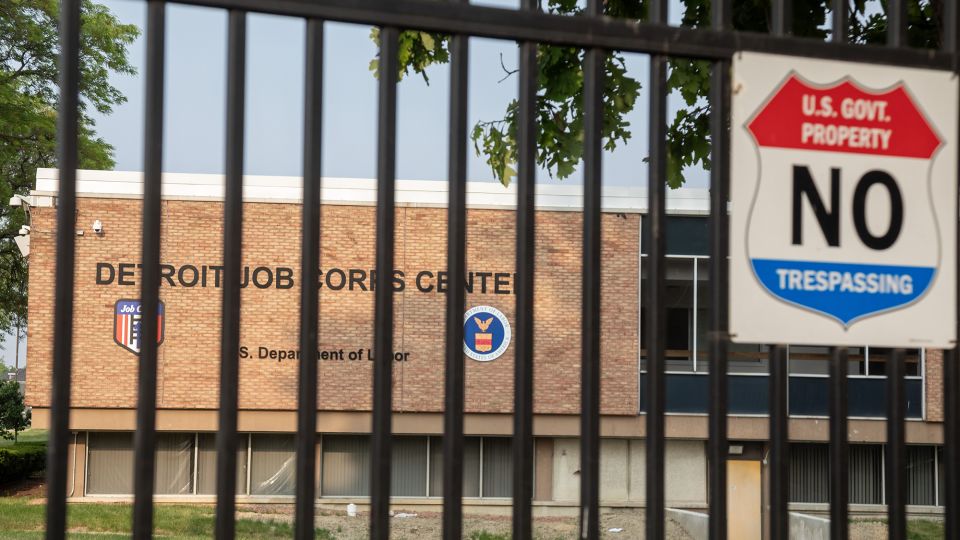Trump Pushes for Skilled Trades While His Labor Department Cuts Worker Pipeline

A Lifeline for At-Risk Youth Hangs in the Balance
Eighteen months ago, Chloe Lawson’s life was a far cry from the promising future she now envisions. Every evening, she would walk four miles to her overnight shift at Subway in Splendora, Texas, earning just above the federal minimum wage of $7.25 an hour. After an exhausting eight hours, she would head back out into the night, often ending up in unsafe accommodations since she had no family or friends to rely on.
“I honestly didn’t have a future,” Lawson admitted. Today, however, the 21-year-old is preparing for interviews as a train conductor—a role that comes with a starting salary of $80,000 annually and the potential for even greater earnings down the line.
Lawson credits much of her transformation to Job Corps, a residential career training program for low-income and at-risk youth established 60 years ago under President Lyndon B. Johnson’s War on Poverty. But this vital program is now facing an uncertain future after the Department of Labor announced in late May that it would pause operations at all 99 private-contractor-operated sites by the end of June, citing budget deficits and poor outcomes.
A Program Under Fire
Labor Secretary Lori Chavez-DeRemer stated that the decision was made due to concerns about safety and fiscal health, though critics argue that the data used to justify the suspension was skewed by pandemic-related disruptions and overly broad interpretations of “safety incidents.” The National Job Corps Association has pushed back against these claims, emphasizing that many reported issues were minor, such as power outages or students leaving campus without permission.
The abrupt shutdown sent shockwaves through the Job Corps community. Staff scrambled to support displaced students, some of whom returned to unstable living conditions. Operators of several centers filed a lawsuit challenging the government's move, and while a preliminary injunction granted in late June temporarily halted the closure, the reprieve may be short-lived. A recent Supreme Court ruling limiting nationwide injunctions could affect the case’s outcome, and ultimately, the program’s survival depends on continued congressional funding.
Economic Implications
Economists and industry leaders warn that shutting down Job Corps would have severe consequences for the U.S. labor market. Rachel Sederberg, a senior economist at Lightcast, noted that there is a critical need for workers in skilled trades—roles like maintenance technicians, truck drivers, and medical assistants—that don't require a bachelor’s degree.
“We’re going to start feeling it quite acutely if we aren’t able to get things in our homes fixed or it takes longer to get things manufactured and transported and into our stores,” Sederberg said.
Arthur Maratea, national president of the Transportation Communications Union/IAM, emphasized how important Job Corps has been for filling workforce gaps in industries like railroads, where trained workers are in high demand. Without the program, he warned, supply chains could face serious disruptions.
Personal Transformations
For individuals like Jasmine Geib, Job Corps provided a second chance. Once homeless and struggling with debt, Geib found stability through the program’s railroad training initiative. Now a licensed conductor and engineer at Union Pacific, she earns between $90,000 and $100,000 annually—with the potential for even more growth in the coming years.
Similarly, Lawson credits Job Corps with giving her the skills and confidence needed to pursue a meaningful career. After moving from Texas to Colorado to join the program, she discovered a passion for ironworking, welding, and fabrication before transitioning into the railroad sector.
“They’re helping kids who, in reality, would probably be in jail or dead,” Lawson said. “They’re helping kids that had no future make something of themselves instead of working at McDonald’s.”
Advocacy and Uncertainty
Both Geib and Lawson have become vocal advocates for preserving Job Corps, sharing their stories with lawmakers and on social media. They argue that rather than shutting the program down, reforms should be implemented to address any shortcomings while maintaining its core mission.
As debates continue over the program’s future, one thing remains clear: For thousands of young people facing economic hardship and limited opportunities, Job Corps represents more than just job training—it offers a lifeline toward a better life.
Post a Comment for "Trump Pushes for Skilled Trades While His Labor Department Cuts Worker Pipeline"
Post a Comment